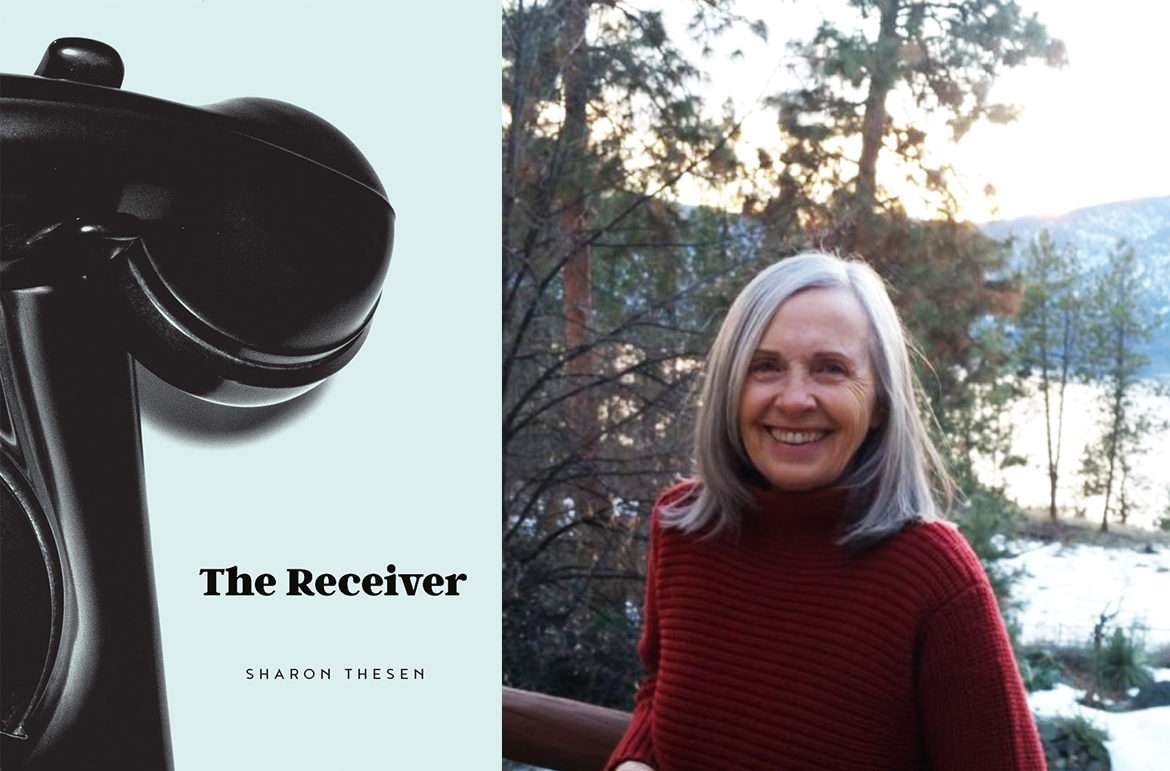Poetic Licence is a special Read Local BC column for National Poetry Month. Each column features one poet and a snapshot into their bookish world. Sharon Thesen is a three-time Governor General’s Award finalist and just released her thirteenth book, The Receiver (New Star Books, 2017).
Who would you say are the greatest influences on your work?
My first major poetic influences were T.S. Eliot, Louis MacNeice, Allen Ginsberg, and John Newlove. After that, major influences were W.C. Williams, Charles Olson, Robert Creeley, Robin Blaser, Ed Dorn, bpNichol, Phyllis Webb. Obviously, my early influences were male writers, while later on, there were more influential women poets—H.D., Daphne Marlatt, Gwen McEwen, Denise Riley, Alice Notley, Louise Gluck, C.D. Wright. At the same time, I am continually inspired and encouraged by dozens of writers, some of them former students, whose work blows me away.
Who is a poet you think everyone should read?
I don’t think everyone “should” read anybody in particular, but I guess there’s always Dante and Shelley.
As a reader of poetry, what attracts you to a poem, or resonates with you?
A voice, an intelligence, a rhythm, a presence. A feeling that, in this particular poem, my soul has some essential company.
How do you write your first draft of a poem?
I start a new poem writing by hand, sometimes the whole thing, sometimes just a few lines, but I finish it on the computer, or as I’m copying it out on the computer.
How much do you edit or rewrite a poem, and how do you decide when it’s done (or good enough)?
Let’s say I think it’s bad, and then I read it later and it’s not that bad. Or, I think it’s okay and then later realize it’s terrible. And it’s not even a matter of good or bad. Sometimes I just like it, and if I like it, if it feels true, it’s good enough for the time being.
Endings are always difficult, and I’ve had more and more trouble with them lately. Maybe they don’t really want to end, or close—but to continue, as everything else does.
What do you eat/drink while writing and why?
I used to drink coffee and smoke cigarettes while I was writing. Now, I can’t drink coffee during the day or I don’t sleep at night. And, I quit smoking about 30 years ago. So my productivity has gone way down.
Where do you like to read?
To give readings, or to read books? I like giving readings in bookstores and small rural halls. I don’t much like giving readings in classrooms. I like to read in bed or at my desk.
Send us your #Shelfie!

Sharon Thesen grew up in Prince George and now lives in the West Okanagan. Sharon is professor emerita of creative writing at the University of British Columbia Okanagan in Kelowna and has been involved in the Canadian and Vancouver poetry scene for many years.
Three of Sharon Thesen’s previous books have been finalists for the Governor–General’s Award for Literature — The Good Bacteria (2006), The Beginning of the Long Dash (1987) and Confabulations (1984). She has also won the Pat Lowther Award (for A Pair of Scissors, 2006), and been a finalist for the Dorothy Livesay Poetry Prize (for Oyama Pink Shale, 2011, and The Good Bacteria). As an editor, she has published two editions of The New Long Poem Anthology, a Governor-General’s Award-winning edition of Phyllis Webb’s poetry (The Vision Tree), and, from 2001 to 2005, edited The Capilano Review.
The Receiver (New Star Books) is Sharon Thesen’s 13th book, and although Thesen’s mother and father, friends, poets in her own life, their poems, might form the immediate subject of the poems here, above all, The Receiver is about poetic imagination.
Check out more 2018 National Poetry Month features here.

